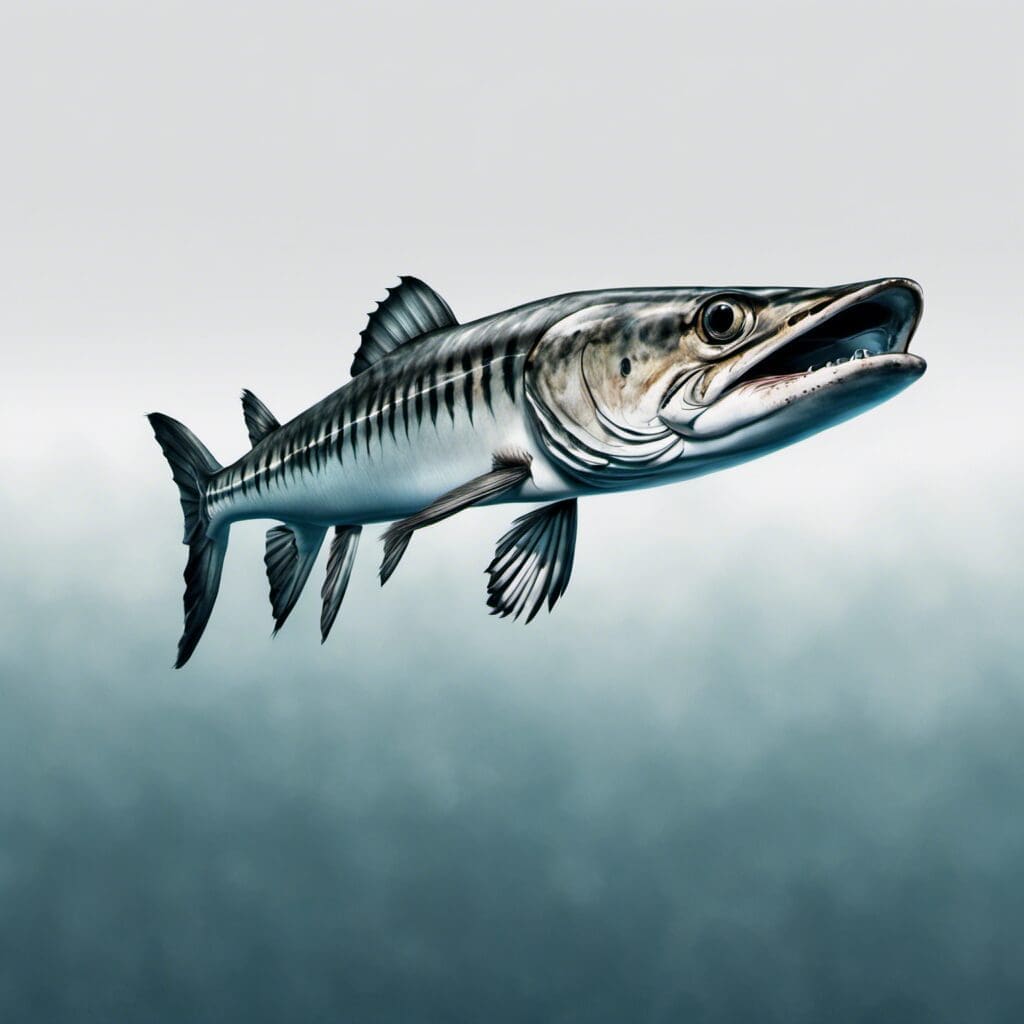Introduction
The Pacific Barracuda, scientifically known as Sphyraena argentea, is a marine species belonging to the Sphyraenidae family. This fish is known for its elongated body, strong jaw, and sharp, fang-like teeth.
Conservation Status
As per the latest reports, the Pacific Barracuda is not currently listed under any of the conservation statuses. This indicates that this species is quite robust and maintaining a stable population due to a lack of apparent threats.
Statistics
| Stat | Average | Range |
|---|---|---|
| Length | 24 inches | 20-30 inches |
| Weight | 8 Lbs | 6-12 Lbs |
| Lifespan | 14 years | Not specified |
Distribution
Pacific Barracudas are commonly found along the coast of the eastern Pacific Ocean, stretching from Alaska down to Baja California, and as far as Panama. These solitary species do not have distinct migration patterns.
Habitats
These fishes inhabit coastal waters, particularly around reefs and kelp forests. They are usually found at a depth range of 0 to 60 meters in temperature range 40-77°F (4-25°C).
When and Where to See
The best time to spot Pacific Barracudas is during the summer and fall, especially during dusk and dawn, as they are most active during these periods.
Best Fishing Locations
- Catalina Island, California, USA
- Santa Monica Bay, California, USA
- San Diego, California, USA
- Ensenada, Baja California, Mexico
- Puerto Vallarta, Jalisco, Mexico
General Tips
Look for Pacific Barracudas in areas where smaller fishes are schooling as they are known for prowling these areas in search of food.
How to Catch
The Pacific Barracudas are aggressive predators that are attracted to fast moving and shiny lures. Methods such as fly fishing, troll fishing, and surface plugging are effective techniques. To increase the chances of a catch, try fishing during early morning or late evening hours.
Identification Guide
Pacific Barracudas are silver to a bluish green on top and silvery sides with a clear lateral line. They have a long, slim body with a quite pointed and pike-like head. One way to distinguish them from similar species is by the placement of their two dorsal fins, in Pacific Barracuda, these are widely separated.
Culinary
Considered an excellent food fish, Pacific Barracuda has a firm texture and mild flavor. Check for any signs of ciguatera, a foodborne illness before consumption. It can be cooked in various ways including grilling, pan-searing, and baking.
Additional Information
Pacific Barracudas have an aggressive feeding habit and primarily feed on fishes like anchovies, sardines, and mackerels etc. Their natural predators include larger fishes and dolphins. Pacific Barracudas don’t have a significant cultural or historical significance, but sportfishers greatly appreciate them due to their feisty nature.
References and Further Reading
- Fishbase – Pacific Barracuda (Sphyraena argentea)
- Florida Museum – Pacific Barracuda (Sphyraena argentea)
- Animal Diversity - Pacific Barracuda (Sphyraena argentea)

